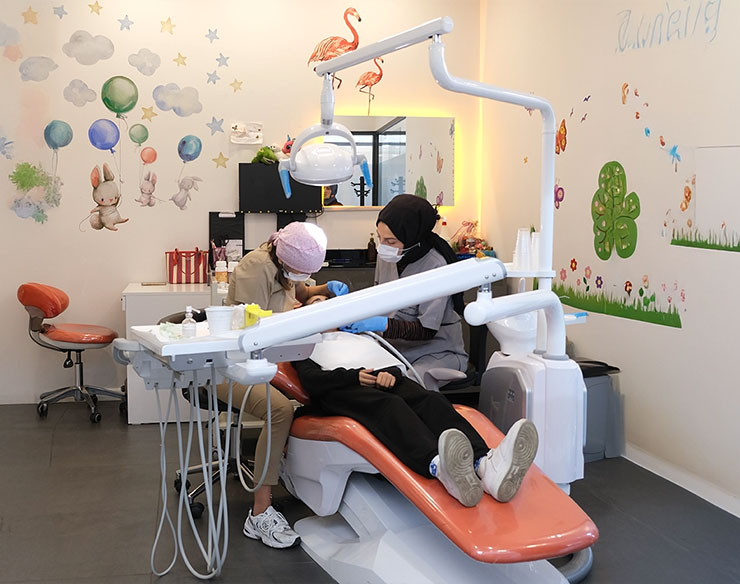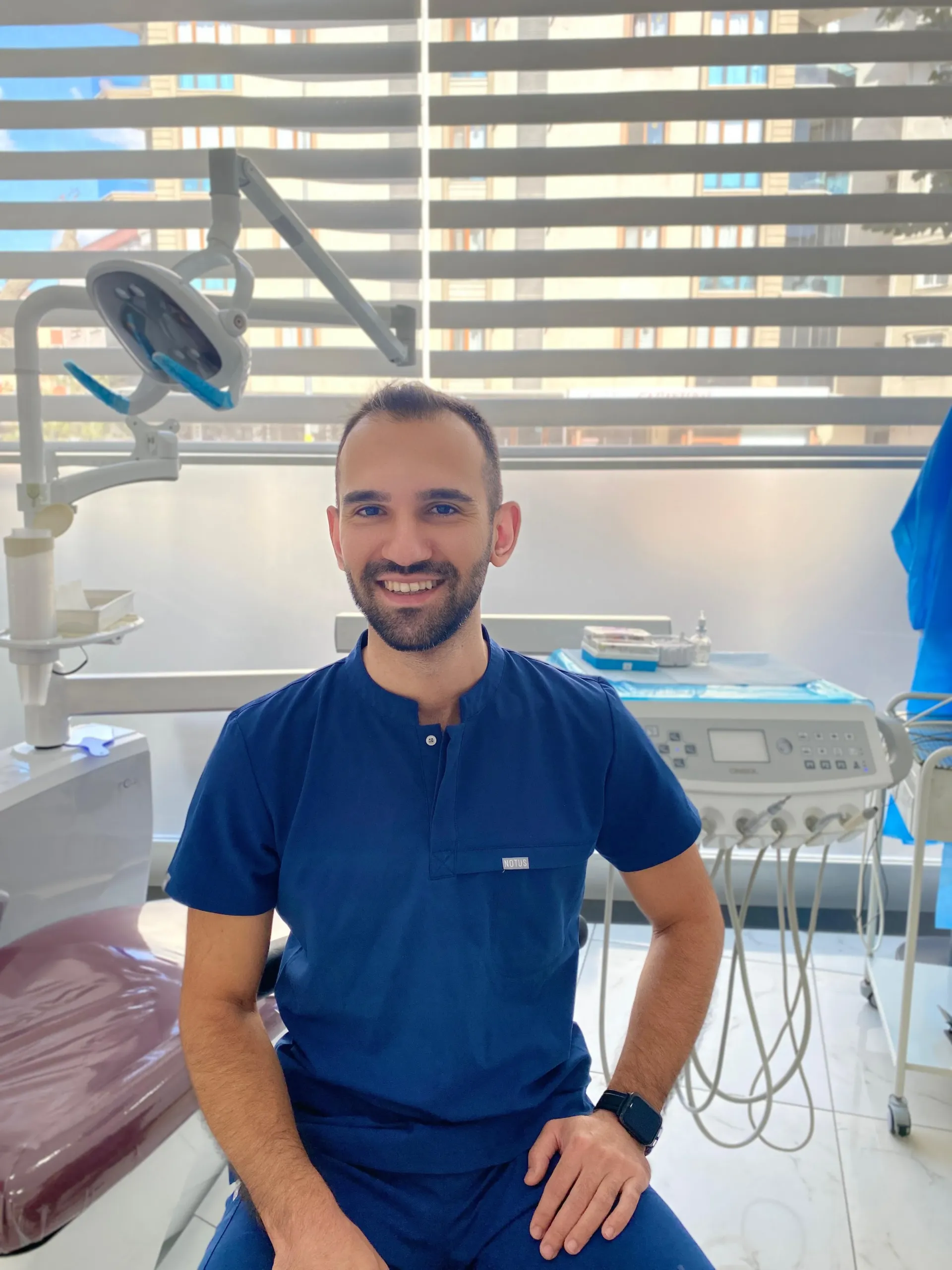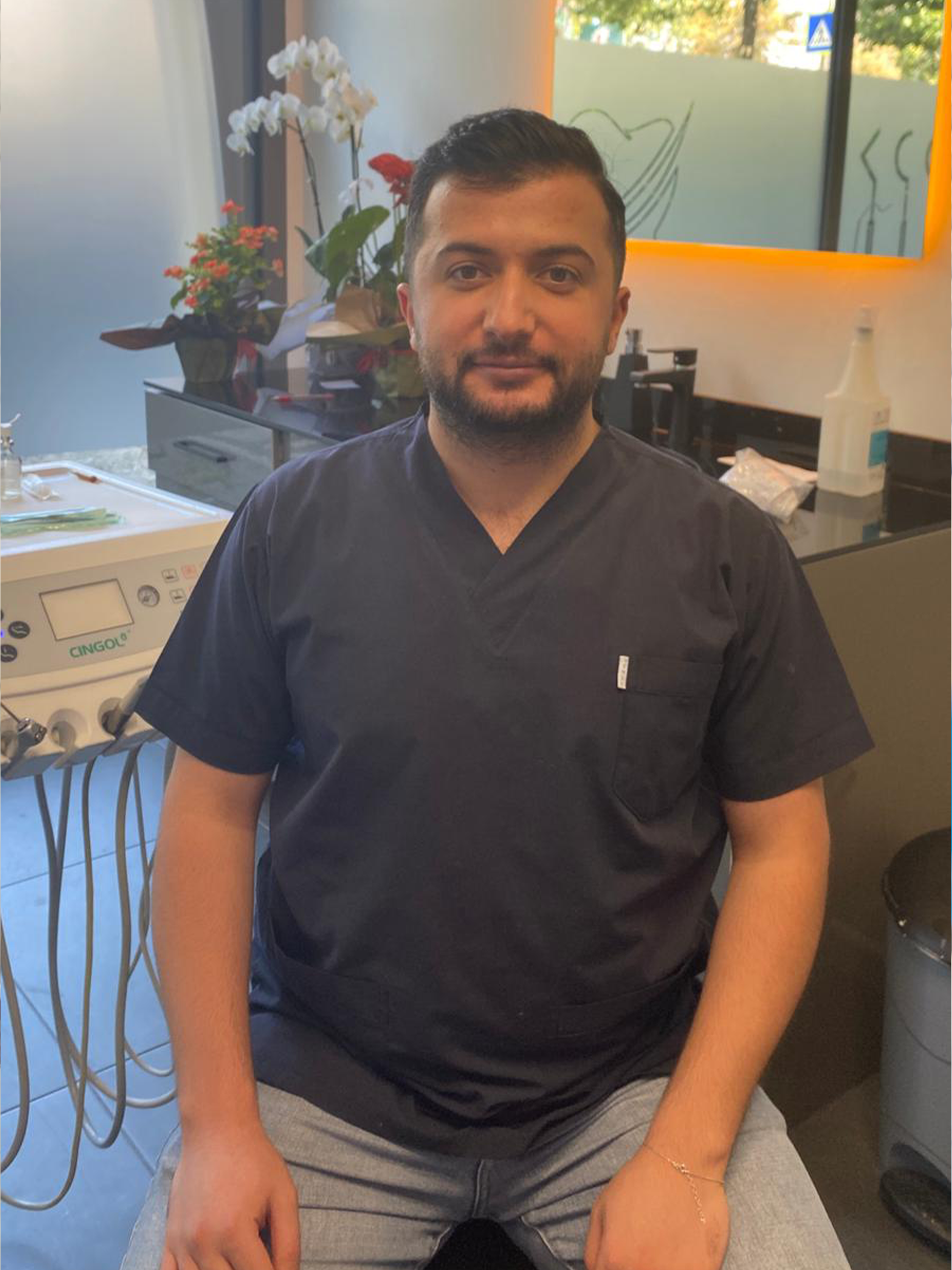Özel Aile Diş Ağız ve Diş Sağlığı Polikliniği
Güçlü Bir Gelecek, Sağlıklı Gülüşlerle Başlar

Mutlu Hastalar, Kusursuz Sonuçlar!
Trust Rank
KAPSAMLI DİŞ HEKİMLİĞİ HİZMETLERİ
Kişiye Özel Tedavi Planları Modern ve Yenilikçi Çözümler
İleri Seviye Tanı Yöntemleri
Doğru teşhis, başarılı tedavinin ilk adımıdır. Panoramik röntgen ve 3D tomografi gibi teknolojilerle, sorunun kaynağını eksiksiz saptıyoruz.
Bütüncül Tedavi Yaklaşımı
Gülüş tasarımından implant cerrahisine, ortodontiden kanal tedavisine kadar tüm ihtiyaçlarınıza tek çatı altında çözüm sunuyoruz.
Ağrısız ve Konforlu Tedavi
Hasta konforunu önceliğimiz yapıyor, modern anestezi teknikleri ve sakinleştirici yaklaşımımızla tedavi sürecini sizin için kolaylaştırıyoruz.
Tüm Aile İçin Diş Sağlığı
Çocuklarınızın süt dişlerinden, yetişkinlerin ileri seviye protetik tedavilerine kadar her yaştan hastamızın sağlıklı gülüşlerini koruyoruz.


Hakkımızda
GÜLÜŞÜNÜZ BİZE EMANET
Özel Aile Diş Polikliniği olarak, ağız ve diş sağlığı alanındaki en güncel teşhis ve tedavi yöntemlerini, etik ve bilimsel ilkelerden ödün vermeden hastalarımızla buluşturuyoruz. Misyonumuz, uzman hekim kadromuzun tecrübesini ileri teknolojiyle birleştirerek her hastamıza özel, şefkatli ve etkili bir bakım sunmaktır. Hasta memnuniyetini ve hijyeni en üst seviyede tutarak, sadece tedavi eden değil, aynı zamanda sağlıklı bir yaşam için yol gösteren bir merkez olmayı hedefliyoruz.
İstanbul’da, sıcak bir aile ortamı sunma vizyonuyla başlayan yolculuğumuz, yıllar içinde büyüyerek Sancaktepe ve Kartal şubelerimizle Anadolu Yakası’nın referans sağlık merkezlerinden birine dönüştü. Kurulduğumuz ilk günden itibaren hizmetlerimizi ve teknolojik altyapımızı sürekli genişlettik. Dijital gülüş tasarımı ve implant cerrahisi gibi dönüm noktası niteliğindeki yenilikleri bünyemize katarak, binlerce hastamızın gülüşünü yeniden tasarladık. Gelecekte de bu güveni koruyarak büyümeye devam etmeyi amaçlıyoruz.
0
Yıllık Tecrübe
%0
Tedavi Başarı Oranı
0
Uzman Kadro
0
Tedavi Çözümü
Şube Bilgileri
Merkez Şube
- Osmangazi, Ahmet Yesevi Cd 8/C, 34887 Sancaktepe/İstanbul
Uğur Mumcu Şube
- Uğur Mumcu Mah. Şeyh Şamil Cad. No:46/G (Yunus Emre Camii Karşısı) KARTAL / İSTANBUL
Yakacık Şube
- Yakacık Yeni Mahallesi, Samandıra Cad. no: 34 / C, 34882 Kartal / İSTANBUL
Sancaktepe Şube
- Osmangazi Mah. Ahmet Yesevi Cad. 17/C Samandıra (Denge Tower Awm İçi) Sancaktepe / İSTANBUL
SIKÇA SORULAN SORULAR
Tedavi Rehberiniz
Merak Edilen Sorular
Hizmetlerimiz, randevu süreçlerimiz ve tedavi seçeneklerimiz hakkında aklınıza gelebilecek soruları sizin için yanıtladık. Aradığınız cevabı bulamazsanız bizimle iletişime geçmekten çekinmeyin.
İlk muayene randevusunu nasıl alabilirim ve bu süreçte beni ne bekliyor?
Randevu almak için web sitemizdeki “Online Randevu” formunu doldurabilir veya telefon numaralarımızdan şubelerimize doğrudan ulaşabilirsiniz. İlk randevunuzda uzman hekimimiz, genel bir ağız ve diş sağlığı değerlendirmesi yapar, panoramik röntgeninizi çeker ve mevcut durumunuza özel tedavi seçeneklerini size detaylı olarak anlatır.
Tedavilerinizde ağrı veya acı hisseder miyim?
Hasta konforu en büyük önceliğimizdir. Kliniğimizde, işlemlerden önce etkili lokal anestezi yöntemleri uyguluyoruz. İleri teknoloji cihazlarımız ve hekimlerimizin hassas yaklaşımı sayesinde tedavi sürecini olabildiğince ağrısız ve konforlu geçirmenizi sağlıyoruz.
Özel sağlık sigortam kliniğinizde geçerli mi? Fiyatlandırma politikanız nedir?
Birçok özel sağlık sigortası kurumu ile anlaşmamız bulunmaktadır. Sigortanızın kapsamını ve anlaşma detaylarını öğrenmek için kliniğimizi arayabilirsiniz. Tedavi ücretleri, yapılacak işleme göre değişiklik göstermektedir. İlk muayenenizin ardından size özel tedavi planı ve şeffaf bir fiyatlandırma sunulacaktır.
İmplant tedavisi herkese uygulanabilir mi ve süreç ne kadar sürer?
İmplant tedavisi, genel sağlık durumu iyi olan ve çene kemiği yapısı yeterli olan çoğu yetişkin için uygun bir çözümdür. Hekimimiz, 3D çene tomografisi ile detaylı bir değerlendirme yaparak size en doğru bilgiyi verecektir. Tedavi süreci, kemik yapınıza ve uygulanan tekniğe bağlı olarak genellikle 2 ila 6 ay arasında tamamlanmaktadır.
Hayalinizdeki Gülüşe Kavuşmak İçin İlk Adımı Bugün Atın








